Jim Broadbent The Sense Of An Ending
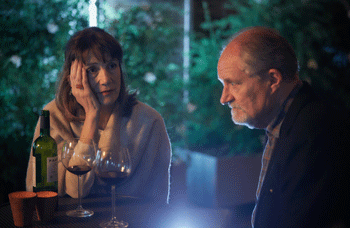
Jim Broadbent The Sense Of An Ending
Cast: Jim Broadbent, Charlotte Rampling, Michelle Dockery, Dame Harriet Walter
Director: Ritesh Batra
Genre: Drama
Running Time: 108 minutes
Synopsis: Tony Webster leads a reclusive and quiet existence until long buried secrets from his past force him to face the flawed recollections of his younger self, the truth about his first love and the devastating consequences of decisions made a lifetime ago.
Adapted for the screen by playwright Nick Payne and helmed by acclaimed director Ritesh Batra ('The Lunchbox"), The Sense Of An Ending stars Academy Award®-winner Jim Broadbent, Harriet Walter, Michelle Dockery, Emily Mortimer, Billy Howle, Joe Alwyn, and Freya Mavor, with Matthew Goode and Academy Award® nominee Charlotte Rampling.
The Sense Of An Ending
Release Date: May 25th, 2017
Trailer
 About The Production
About The Production
'The Sense of an Ending is just one of those books I've always carried with me. Maybe I'm an old soul, but it just really speaks to me." Director Ritesh Batra was just one of a legion of fans enamored with Julian Barnes's beautiful and beguiling novel The Sense of an Ending, upon its release in 2011.
Consisting of two parts, the novel concerns Tony, a man living a quiet and reclusive existence when a relic of his 60's school days comes back to haunt him, forcing him to question everything that he thought he knew about his past and face the devastating consequences of his actions.
Winner of the Man Booker Prize that year, Barnes's meditation on the fallacy of memory was notable not only for its nuance, but for an intricate structure set in two time periods and an unreliable narrator whose disclosures (or lack thereof) drive the pace of the narrative.
'On one hand it's a psychological thriller, so people read it fairly quickly. On the other hand, it's a novel that withholds things from you," says Julian Barnes.
Actors Emily Mortimer and Harriet Walter were among those immediately fascinated by the novel. 'I was completely taken by it," comments Emily Mortimer. 'To me, what really struck true about the experience of reading the novel was the violence of youth - when you think back to the things you did to other people, or that were done to you when you were young, when you were in the first phase of becoming a grown-up."
For Harriet Walter, the attraction was not in the depiction of youth but the recognition of how the memory of youth can directly influence the present. 'The story strikes many chords for me and anyone who's in more or less the same place in their lifetime as the central character Tony. We are all subject to the same sorts of distortions of memories, and marked by misunderstood moments in our past."
Despite possessing a structure not immediately ripe for cinematic adaptation, award-winning playwright Nick Payne ('Constellations") had also read the book and was intrigued by it. During a meeting with production company Origin Pictures, he was asked if he'd read anything recently that he'd liked. 'I said -Well I've just finished this amazing book, The Sense of an Ending. 'It had won the Booker not long before so I assumed the rights would be unavailable but, miraculously, they were available."
Founded in 2008 by former BBC Films head David Thompson with Ed Rubin as Head of Development, Origin Pictures already had such film production credits under their belt as 'Mandela: Long Walk to Freedom," 'What We Did on our Holiday" and 'Woman in Gold." Thompson and Rubin snapped up the rights and Payne set out on the adaptation.
 The producers knew that to make Payne's adaptation work they needed an innovative director able to translate the novel's intricacies onto the screen in a way that was entirely relatable to the audience. Ritesh Batra, the director who had recently found success with the acclaimed film 'The Lunchbox," had also fallen for the book.
The producers knew that to make Payne's adaptation work they needed an innovative director able to translate the novel's intricacies onto the screen in a way that was entirely relatable to the audience. Ritesh Batra, the director who had recently found success with the acclaimed film 'The Lunchbox," had also fallen for the book. 'Julian Barnes is one of those writers that when you read one book of his, you just go on a Julian Barnes spree" says Ritesh Batra. 'I have always loved the book since I read it back in 2011. I tracked it down a little bit, found out that it was already in development and forgot about it."
The story did not end there, however.
'About a year after that I think the producers had seen my last movie, -The Lunchbox,' and came to me with an offer to direct," Ritesh Batra continues. 'I was very curious to see what the writer had done with it. I read the script and obviously fell in love with it."
Though the script was a finished draft at that point, Payne and Batra sat down and worked through a few remaining issues together. The relationship was a fruitful one. 'We just bounced around the script between us for a while," Ritesh Batra recalls. 'It's nice to work with people who are secure with their talent and just really open."
Meeting Julian Barnes for the first time was a more daunting experience, however. Batra remembers:
'We sat down in his garden and I'm sitting there, having tea and cake. He started saying something to me and went on for a good 5 minutes and I didn't hear a single word he said because I'm thinking -I'm having tea with Julian Barnes!'"
Adapting The Book For The Screen
If Batra was worried that he might be precious about the adaptation process, he was soon reassured by Barnes. 'The last thing he said was -go ahead and betray me.' I'm glad I caught that one."
'The best way to be loyal as a filmmaker is to be disloyal to the book; I've always believed that," says Barnes.
'As long as you've handed it over to highly talented people, you have to let them fly free with it." Being given carte blanche to stray from the rigid structures of a faithful adaptation was the main attraction for Payne. 'The thing that really appealed was that you can structurally do something quite playful, like the novel," notes Payne. 'The screenplay is almost a coming-of-age story, but about someone who's in their sixties. Often that genre is reserved for people who are younger, but I think people continue to change their entire life."
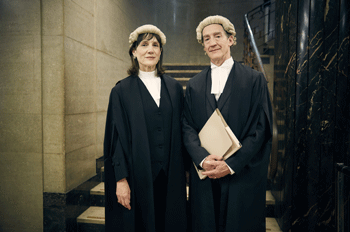 The aim of Batra's direction and Payne's script was to stay faithful to the essence of the book, but extrapolate place and character in such a way as to fill the screen in a cinematic sense. 'A film can be a complement to a book but when you're adapting something, all you can do is bring yourself to it," continues Ritesh Batra.
The aim of Batra's direction and Payne's script was to stay faithful to the essence of the book, but extrapolate place and character in such a way as to fill the screen in a cinematic sense. 'A film can be a complement to a book but when you're adapting something, all you can do is bring yourself to it," continues Ritesh Batra. Because of the internalized narrative of Tony's narration in the book, Payne and Ritesh Batra's collaboration needed to flesh out minor characters into fully formed roles, as well as to build on Tony's perception of other characters to fully realise the emotional weight of each scene.
Joe Alwyn, who plays young Tony's tragic school friend and rival Adrian, felt that the information gleaned from both the book and the script was enough to be able to fully realize his character, who is only described from memory in the novel. 'The book is amazing because it gives you a mine of information, even though it is very internal and told from Tony's perspective. But the script then does bring its own unique structure."
Freya Mavor, who plays the young Veronica, Tony's first love, really felt that the more fleshed out secondary characters added something to the story. 'What Nick's done really well is that these characters that are passing by in the book – the daughter, his friends, Margaret – they all become these pillars in the script."
'I think that's a feat to be able to do that and still remain so true to the book's essence and feeling," Mavor continues. 'It's a really fabulous adaptation."
Harriet Walter, who plays Margaret, agrees that the development of characters such as her own is a definite benefit to the story: 'Screen adaptations of novels often provide the richest roles for women and older people. I suppose because the authors are often experienced people who tell the story through an experienced observer. But it is also quite difficult to successfully adapt the subjectivity of that observer into a protagonist in a movie. What I find exceptional about this script is that some characters are more fleshed out than in the book. They have their own autonomy and therefore a different version of the truth from Tony's. I think that Nick and Ritesh have done a great job with that, bringing more focus on to Tony's family, my character, his ex-wife Margaret who in many ways knows Tony better than he knows himself, and their daughter Susie…her story points us and Tony into the future."
Changes to the more fully formed characters in the story, such as Charlotte Rampling and Freya Mavor's Veronica, also came about through working with the actors on set, explains Ritesh Batra. 'The Veronica in the book is a tragic figure that really works within the book, but our Veronica is someone who is full of life, and her life is more interesting than Tony's."
Similarly, each actor brought their own interpretation to the role that necessitated changes in the script, compared to the story. Continues Ritesh Batra: 'Emily Mortimer, who plays Sarah Ford, is in many early versions of the story a seductress, but of course Emily Mortimer brought such a great sophistication to the part that she really brought herself to it."
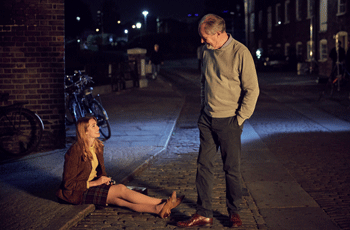 The script is imbibed with Payne and Ritesh Batra's own relationship to the story too, and what they feel are the most important themes within it. Ritesh Batra had a particularly close emotional connection to the thoughts and feelings of the older generation displayed within it. 'I shared a room growing up with my granddad.
The script is imbibed with Payne and Ritesh Batra's own relationship to the story too, and what they feel are the most important themes within it. Ritesh Batra had a particularly close emotional connection to the thoughts and feelings of the older generation displayed within it. 'I shared a room growing up with my granddad. Sadly he died when I was 18," explains Ritesh Batra. 'I saw his sort of loneliness and his regret and everything he went through in that stage in life. I got to see it in close quarters so I'd like to think I can bring something to a story like this."
Casting
A film set in two time periods that relies so heavily on the dual narrative of the central character required actors able to portray the innocence of the young Tony and regret of the older version. Screen veteran, and Academy Award®-winner, Jim Broadbent was the first to be cast, as the older Tony, and he was joined by newcomer Billy Howle, in his debut film role.
Despite playing the same character, the pair didn't want to overthink how each performance would match up on screen.
'Neither of us thought to put emphasis on how we were going to do this, which was scary, but it was also very freeing and liberating," explains Billy Howle. 'What Jim had made very clear was that we have free range to feel our own way through it. I also trusted Ritesh Batra with that information and passing that on. He's done a lot of the mediating. It was good to get a sense who Jim Broadbent was as an actor and a person." For Ritesh Batra, Billy Howle fitted the role perfectly. 'There's a very endearing awkwardness about Tony. The first time I met Billy Howle I saw that."
Young Tony's life is changed the day mysterious Adrian joins the school. Ritesh Batra and the producers found the perfect actor for the part in Joe Alwyn, another relative newcomer whose star has been on the rise having played the lead role in Ang Lee's recent film 'Billy Lynn's Long Halftime Walk."
The reasons to say yes to the role were obvious to Joe Alwyn. 'Being involved with such an exciting new director who'd just made -The Lunchbox' and this incredible older cast of Jim Broadbent, Charlotte Rampling, Harriet Walter, and then Emily Mortimer, Michelle Dockery, and Matthew Goode. Every aspect was an attraction. As a package it was incredible."
Adrian's personality has an immediate effect on the character of Tony. 'Tony, for want of a better word, has a fascination with him," says Billy Howle. 'He has a fascination with his intellect and with the darker facets of Adrian's persona."
Joe Alwyn agrees. 'He's this center of gravity, a presence, which you don't quite know but it draws everyone to him for some reason, perhaps because he's almost unknowable. '
 As the story progresses, it becomes apparent that the fallacy of Tony's memory affects how the audience views him, something that Joe Alwyn finds interesting. 'The whole thing is told through Tony's perspective and his point of view. Adrian is the sum of other people's memories. He's a bit of a mystery; you only know about him through what Tony remembers about him."
As the story progresses, it becomes apparent that the fallacy of Tony's memory affects how the audience views him, something that Joe Alwyn finds interesting. 'The whole thing is told through Tony's perspective and his point of view. Adrian is the sum of other people's memories. He's a bit of a mystery; you only know about him through what Tony remembers about him." Equally as important to the story was the casting of Tony's first love, Veronica. Scottish actress Freya Mavor was a natural fit for the younger role and the older version is played by the iconic Charlotte Rampling. Nick Payne felt Rampling's casting was an inspired choice. 'She's so experienced that she can convey an awful lot through doing very little. I think that's a great thing for Veronica, who actually isn't in the story a huge amount but is a vital element in the story. You need someone who can convey an entire history, an entire life that's been lived while not literally giving any of that away within the scenes."
Jim Broadbent agrees. 'She's great, beautiful casting for the role of Veronica. It just seemed absolutely natural and obvious and perfect in its way. I can't imagine Veronica being played by anyone else." Playing the same role as Charlotte Rampling was a slightly daunting task for Mavor, but one she took in her stride. 'She's someone I admire so much that the thought of sharing a role with her meant I felt like I had big boots to fill."
The complementary casting of Charlotte Rampling and Mavor also served to strengthen the change in the character's tone.
'There's this kind of youthful vibrancy and exuberance to young Veronica, casting wise" comments Billy Howle. ' That's still there, but it's simmering by the time you get to older Veronica. Everything becomes sort of below the surface."
Mavor feels the more vibrant Veronica is a character she can more easily identify with: 'In the book Julian Barnes says a wonderful thing about -mysterious women' where he says there are some women who are not mysterious at all and they're only made so by men's inability to understand them. I think this is very much the case with Veronica Ford. She goes down in Tony's memory as a woman of mystery and she's marked as this elusive, unreadable character which is funny because I don't think she's mysterious at all. I think she sees something in Tony that offers comfort and simplicity."
Charlotte Rampling feels the same about the older Veronica, too. 'She's not so mysterious, she's just somebody that actually lives by her own way of thinking with her own social rules. She has a particular idea of her own individuality. She behaves in the way she thinks is appropriate to behave without taking into much consideration the feelings of others when they are not aligned with hers."
Despite the initial first flush of love, their relationship doesn't last, something that Freya Mavor feels is due to their differing outlooks on the world. 'First relationships are always very intense because it's the first time and you don't really know what you're doing. I think that's very true for both of them. He's someone who romanticizes things and wants them to be a certain way and she's someone who's quite straight-forward."
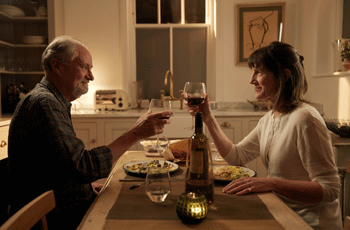 Rampling agrees. 'Veronica's not necessarily a mystery but she's certainly a mystery to a man like Tony." With Tony and Veronica's relationship finished, Tony is shocked to discover that she is now with his friend Adrian.
Rampling agrees. 'Veronica's not necessarily a mystery but she's certainly a mystery to a man like Tony." With Tony and Veronica's relationship finished, Tony is shocked to discover that she is now with his friend Adrian. The letter he writes to Adrian in response to this is the catalyst for the recurrence of events all those years later, after Veronica's mother Sarah Ford leaves him the letter in her will and the older Veronica holds it from him. Emily Mortimer plays Sarah in the flashback scenes and sees her relationship with her family and with Veronica's younger friends as a complex one. 'They are Sarah's only access to a different world or a different way of thinking," explains Emily Mortimer. 'She's very unhappy in her marriage and a woman of a certain age who is suddenly aware that she isn't young anymore."
Mortimer adds: 'Events of the past keep coming back to Tony throughout the story and eventually become something that he can connect to the truth of what actually happened to his friend, Adrian, and what is at the heart of the mystery of the film. Sarah is apparently not a major player in the action of the story, but suddenly becomes a pivotal player, responsible for the main drama."
Sarah's link to Adrian appears an obvious one to Mortimer. 'They are, in some ways, both free spirits and the least conventional characters in the novel and the screenplay. I think there's something in her being able to think paradoxically and see the sort of beautiful ironies of life and death that make her a good companion for Adrian."
The innocence of the younger Tony is replaced in later years by a man resigned to a certain way of living, dealing with an estranged wife and damaged relationship with his daughter.
Tony's letter is the catalyst that starts him on a journey of self-discovery, and ultimately on the path towards a better relationship with both of them.
On the relationship between Tony and former wife Margaret, Jim Broadbent explains, 'They are divorced so clearly there were tensions and regrets within their past and to some extent, they're still there. But, they were married for years and years and they do have an awful lot in common, so the relationship reaches a plateau where they can work together."
Harriet Walter, who plays Margaret, believes that the relationship provides a sounding board for Tony to share his feelings about the past, thanks to her more realistic approach to life. 'She's pretty practical, sensible and philosophical about life. She doesn't get hysterical about anything. She's basically his best friend, in a funny way. He can more or less tell her anything and so she becomes the person who he tells his whole story to."
Walter doesn't believe that makes her in any way sympathetic, however. 'I think she thinks the poor woman (Veronica) must have a complete life of her own, which is probably nothing like Tony's version of her. She thinks Tony has put Veronica on a pedestal and is stuck in a time warp of his teenage lust and idolization of her." The emotionally fraught excavation of his past ultimately inspires Tony to try for a better future with his daughter too, played by Michelle Dockery ('Downton Abbey").
 Nick Payne felt that writing a larger role for Tony's daughter in the film could help audiences understand how Tony had been changed by the whole process. 'I thought part of the arc for Tony could be someone who is resistant to or unsympathetic to what his daughter is going through. It seemed that thematically, a daughter who was about to become a mother chimed with all the other things going on in the novel."
Nick Payne felt that writing a larger role for Tony's daughter in the film could help audiences understand how Tony had been changed by the whole process. 'I thought part of the arc for Tony could be someone who is resistant to or unsympathetic to what his daughter is going through. It seemed that thematically, a daughter who was about to become a mother chimed with all the other things going on in the novel." Michelle Dockery also saw the progress of Tony's relationship with his daughter and her pregnancy during the film as an indicator of his own emotional journey. 'It's really interesting, because it evolves throughout the film during this process that she's going through. I like it that she's not really involved in that part of his life; they just drift in and out of each other's lives. Hopefully by the end he understands her a lot more once he's lived in someone else's shoes, in the case of Veronica and everything she's been through."
More often than not for Ritesh Batra, the precision in casting meant that they helped to evolve his characters throughout the course of the shooting. 'The good shooting days are always the ones where you discover something about the characters; more than what you thought you knew."
Working With Ritesh
'Caring, very precise and very detailed, watching every shot and every moment of the action. It's a comfort as an actor to have someone taking that degree of care. You feel in safe hands." Jim Broadbent's description of working with Ritesh Batra summed up the feelings of the rest of cast; an intelligent, sensitive director with a considered approach to filmmaking that made him the perfect choice to tell the story of The Sense Of An Ending.
'I didn't know Ritesh Batra before meeting him for this job," says Harriet Walter, 'but I quickly got a copy of -The Lunchbox' and totally loved it. As soon as we met and talked a bit, I knew I would like to work with him, because he puts a lot of trust in the actors which is not always the case." Helping the actors explore their reserved character's motivations and innermost thoughts and feelings was a big part of the rehearsal and filming process for Ritesh Batra.
'You just have to keep this sort of sense of discovery alive and make sure the work keeps speaking to you, and you're sort of talking back to it," explains Ritesh Batra. 'I think the worst thing you could do with the movie is show up and go through the process of covering beat, after beat, after beat mechanically. You need to keep the work alive for yourself and for the actors."
That meticulous approach was one that Charlotte Rampling appreciated. 'He likes a long time for takes, a long time to explore each scene. He makes absolutely sure that his actors are getting as much as they can out of each moment, encouraging us to probe deeper and come up with surprises. He likes to let us loose and follow us quietly with his -watchful' eye."
Broadbent agrees. 'It's an on-going process which is stimulating. It's good, it keeps you on your toes." Freya Mavor felt that Ritesh Batra and his way of working helped her to relax on set. 'He's got a very calm aura about him, which I think is very different to a lot of the way that we're used to. We're used to working at very fast paced high-stressed situations in the UK and he's got a really nice way of taking his time with things." The slow approach worked for Michelle Dockery, too. 'It's been a really relaxed way of working and I think that comes from Ritesh Batra. As much as we met up quite a lot and rehearsed and everything, it never felt like anything was set."
The sense of fluidity with rehearsals and the shoot extended as far as the script too, with Ritesh Batra in constant contact with Nick Payne about the story during filming.
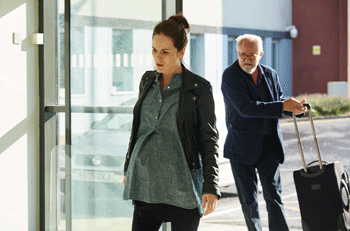 'I think I've been very lucky with Ritesh Batra and that he wanted to keep me around," comments Payne. 'We worked on the script very closely and even changed a few things during shooting."
'I think I've been very lucky with Ritesh Batra and that he wanted to keep me around," comments Payne. 'We worked on the script very closely and even changed a few things during shooting." To add to the natural, improvisational feel to the shoot, the scene with Tony and daughter Susie at an NCT class was filmed with a real NCT class and instructor. This was a somewhat unusual experience for Broadbent and Dockery, having only just met for the first time.
Both took it in their stride.
'The NCT class was really funny to film," explains Dockery. 'It was awkward as I'd only just got to know Jim, I'm bending over a big bouncy ball and he's sat behind me massaging my hips. It was so weird and appropriately awkward for the scene because of course, she's with her father and everyone else in the class were real couples."
'It was a nice way to film it," agrees JimBroadbent. 'Certainly, the intimacy that was required between a father and daughter seemed quite real in its awkwardness!"
Ritesh Batra's methods are much more involved and can take a lot longer than other shoots. Sometimes this can seem arduous, but Ritesh Batra believes the payoff at the end makes it all worthwhile, and his position is one of privilege. 'The whole exercise is a form of torture sometimes, but the reason you do it is so you can bask in the splendor of these actors. They have this wonderful instrument that you don't have. To be able to have front row seats to that is why you make a movie, to see them slip into characters and do their thing."
Our Sense Of An Ending
'People like to fill in gaps in novels. Sometimes they fill them in wrongly, but that's equally instructive to the novelist," says Julian Barnes.
There is much left unsaid and unknown in Barnes's novel, due to the one-sided nature of a lone narrator and the unreliability of his memory. This functions well in literary form, but presents new challenges for cinematic adaptation. As such, Nick Payne and Ritesh Batra sought to embellish the story and characters to fill out a film script, but were mindful of retaining that air of mystery, to stay true to the tone of the novel.
'I probably didn't realize it would be such a challenge. I think the bit that really appealed was that it was about memory, but not in a way that film normally is," says Payne. 'It's a kind of everyday memory where everyday people have mythologised retrospectively how badly they treated people."
This was appealing to Michelle Dockery. 'A lot of the film is quite ambiguous and some things are left quite open for the audience to decide what they feel about a character. I like that it's not all set from the beginning." The trick for Payne was to craft a script that would make sure that ambiguity was at the heart of the story, and Ritesh Batra's aim was to pick this up and ensure that the actors also bought into this with their performance.
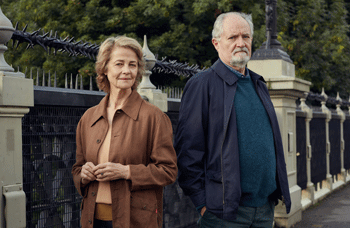 Even the title itself holds a sense of ambiguity for Harriet Walter. 'It's a suitably enigmatic title. It contains the idea of making sense of an ending, the sense that one's own life is coming to an end. And it contains the idea that we put an end to certain stories in our lives to wrap them up, but we can get that so wrong."
Even the title itself holds a sense of ambiguity for Harriet Walter. 'It's a suitably enigmatic title. It contains the idea of making sense of an ending, the sense that one's own life is coming to an end. And it contains the idea that we put an end to certain stories in our lives to wrap them up, but we can get that so wrong." Charlotte Rampling explains further. 'I think we've all have our own versions of the story in our heads about what actually happened, because Julian Barnes doesn't really give us many tips. And so we weave in and out of the story creating impressions through our own memories."
'I hope there will be an awful lot of discussion about what the themes are. They're all there up for grabs; people can find their own meanings and themes in the story," says Jim Broadbent. 'I think it is part of the nature of the whole film, this question of memory and history."
'When you get to our age, memories are very far away! We have told certain stories for so long, it is a shock to be confronted with another version from someone else," adds Walter.
Ultimately, the past we choose to forget and the nostalgia we each hold in our own lives are the reasons audiences will identify with Tony's story.
''The Sense of an Ending' is a really a fascinating exploration of the sort of story we tell ourselves about our past," says Freya Mavor.
'
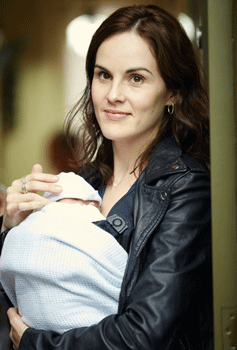 We lock away certain events of our lives until the time comes for us to remember. Then memory comes hammering on the door, a wake up call to make peace with the past," continues Charlotte Rampling.
We lock away certain events of our lives until the time comes for us to remember. Then memory comes hammering on the door, a wake up call to make peace with the past," continues Charlotte Rampling. 'The story is about discovering certain sides of yourself that maybe you haven't had a chance to reconnect with." Billy Howle agrees. 'We all have regrets and things we are reluctant to discuss or even remember ourselves. And so our memories fool us, really, to protect us."
Nick Payne sees something quite positive in Tony's redemption and conscious choice to face up to the past he had chosen to forget. 'He is given the opportunity to look back over his entire life and see it in a completely different way. I think there's something quite optimistic about that. History is not infallible; it's fluid and can change. You never run out of a second chance."
What do the filmmakers hope audiences will take away from the film?
'I hope that (moviegoers) can walk away with a sense of a very particular kind of longing that Tony feels," continues Nick Payne.
For Ritesh Batra, the hope is more about making a film that complements the book, yet stands up as a film in its own right. 'I really hope we populated Julian's universe in a way that's true to the movie and the book as well. He's just a wonderfully generous man and I hope the movie and the book can exist together as complements."
The Sense Of An Ending
Release Date: May 25th, 2017
Trailer
MORE
- Mission: Impossible Fallout
- Glenn Close The Wife
- Allison Chhorn Stanley's Mouth Interview
- Benicio Del Toro Sicario: Day of the Soldado
- Dame Judi Dench Tea With The Dames
- Sandra Bullock Ocean's 8
- Chris Pratt Jurassic World: Fallen Kingdom
- Claudia Sangiorgi Dalimore and Michelle Grace...
- Rachel McAdams Disobedience Interview
- Sebastián Lelio and Alessandro Nivola...
- Perri Cummings Trench Interview



